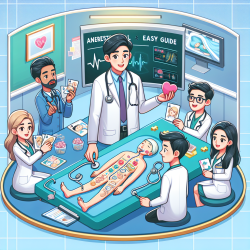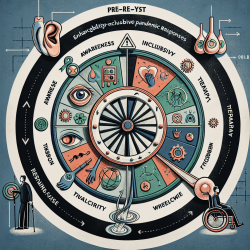Unlocking the Power of Effective Communication in Anesthesiology
In the realm of anesthesiology, communication is more than just a skill—it's a lifeline. The ability to convey difficult news effectively can make a significant difference in the experiences of patients and their families. A recent study titled Effect of a simulation-based workshop on breaking bad news for anesthesiology residents: an intervention study offers valuable insights into enhancing these crucial skills.
Why Focus on Breaking Bad News?
Breaking bad news (BBN) is an intricate and stressful task for anesthesiologists. Whether it's postponing a surgery or informing about an intra-operative complication, the emotional weight can be immense. The study highlights that anesthesiologists often face these situations without formal training, relying instead on "on-the-job" learning, which varies greatly in quality and effectiveness.
The GRIEV_ING Protocol: A Structured Approach
The research introduces the GRIEV_ING Death Notification Protocol, a structured curriculum designed to improve BBN skills through immersive simulation and role-play with standardized patients (SPs). This 27-item tool assesses competencies in areas such as preparation, delivery, and wrap-up, providing a comprehensive framework for practitioners.
Key Findings from the Study
- Improved Skills: Post-intervention, anesthesiology residents showed significant improvement in their BBN skills, with scores rising from below 65% to over 80% on the GRIEV_ING checklist.
- Increased Confidence: Residents reported higher confidence and comfort levels in delivering bad news after the workshop.
- Effective Training Methods: The combination of high-fidelity simulation and role-play was crucial in enhancing communication skills.
Implementing These Findings in Practice
For practitioners looking to improve their communication skills, incorporating simulation-based training can be transformative. Here are some steps to consider:
- Embrace Simulation: Utilize high-fidelity simulators to create realistic scenarios that challenge and develop your communication abilities.
- Engage in Role-Play: Practice with standardized patients to receive feedback and refine your approach.
- Adopt the GRIEV_ING Protocol: Use this structured tool to assess and enhance your skills systematically.
Encouraging Further Research
While this study provides a solid foundation, ongoing research is essential to refine and expand these training methods. Practitioners are encouraged to engage in further studies to explore long-term impacts and adapt the protocol for various medical contexts.
To read the original research paper, please follow this link: Effect of a simulation-based workshop on breaking bad news for anesthesiology residents: an intervention study.










